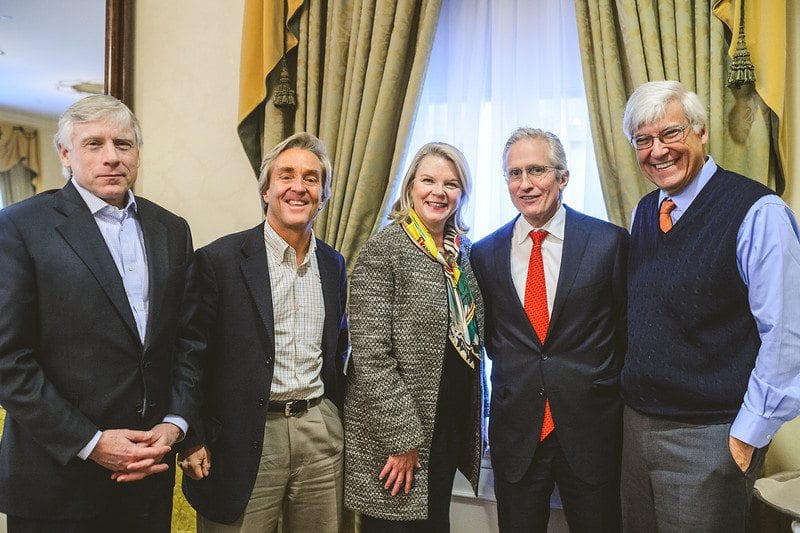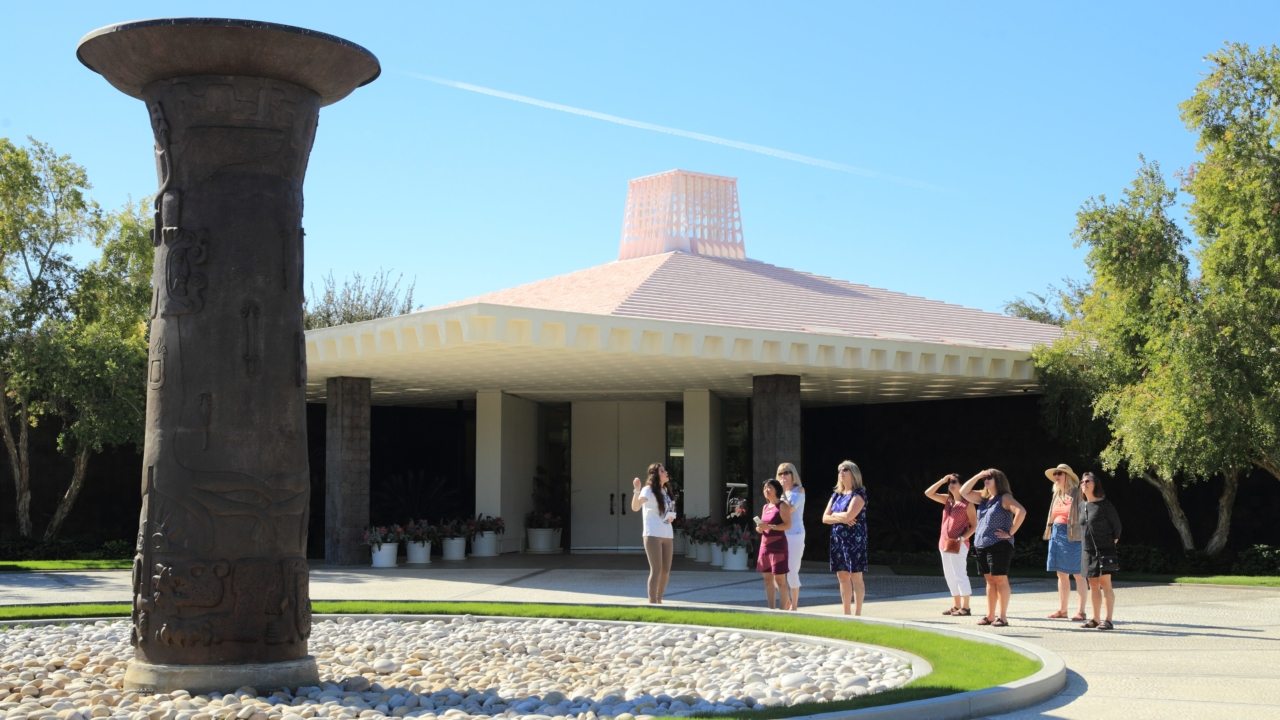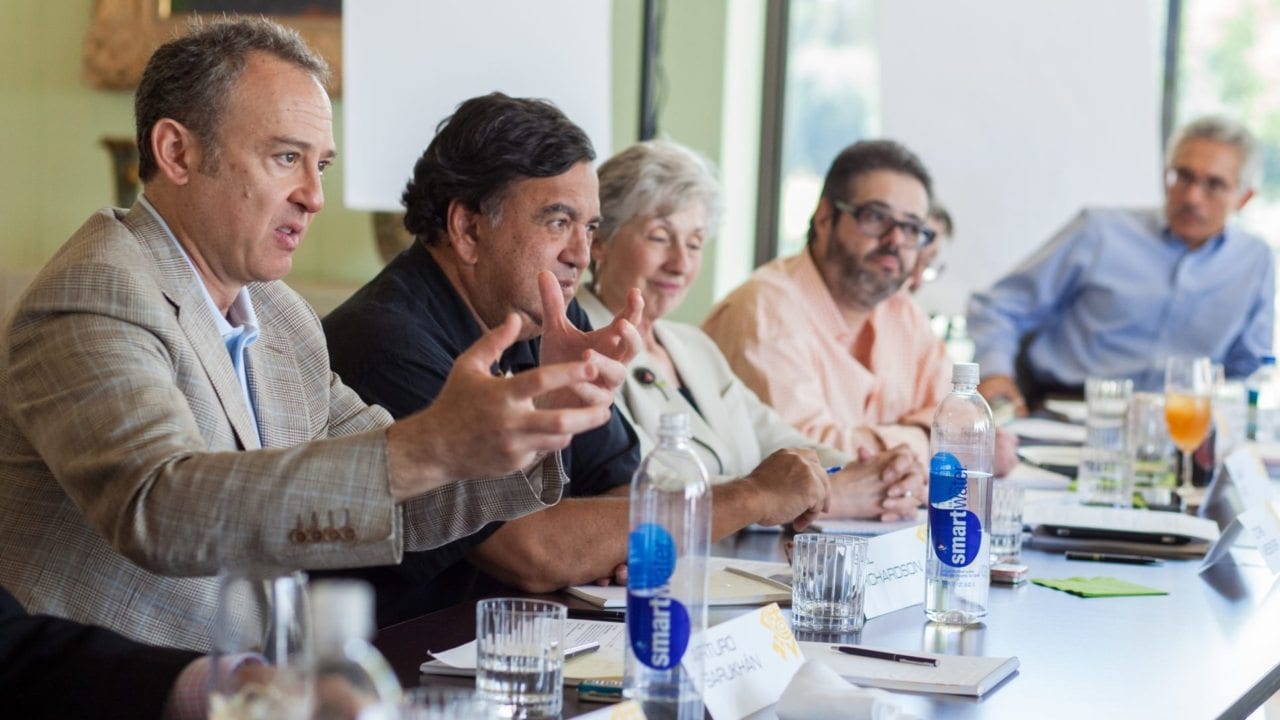Educators, policy makers, and education technology leaders issued a call to action to increase broadband internet access and support for teachers using technology during a Washington, D.C. meeting convened by Sunnylands, Common Sense Media and the LEAD Commission. The leaders attending concluded that, along with supporting professional development and creating certifications and standards for teachers, much needs to be done to ensure all American school sites have access to high-speed broadband internet.
“We must still address the challenge of improving the broadband infrastructure to the building for many schools and libraries, particularly in rural America,” said Tom Wheeler, chairman of the Federal Communications Commission. “The fact is many rural schools and libraries lack the infrastructure needed to deliver high-speed broadband. The FCC estimates that 40% of schools in rural areas lack access to fiber networks. And of those that could access fiber, only about a third do so, principally because of high costs.”
The 2014 EdTech Connect Summit gathered more than 100 educators to discuss the topics of supporting professional development, establishing standards, building leadership at the administration and school board level, and increasing funding and support from industry and non-government organizations.
“The goal of the LEAD Commission, Common Sense Media, and The Annenberg Retreat at Sunnylands is to have sessions that are not only fascinating, but wind up with concrete recommendations that become actionable and lead to policy changes,” Geoffrey Cowan, then-president of The Annenberg Foundation Trust at Sunnylands. “This meeting will determine what can be the next steps to make this aspect of education profoundly different because of what was discussed today.”
Beverly Perdue, former Governor of North Carolina who now chairs DigiLEARN, said that in addition to building partnerships for educators and business, it is essential to build partnerships between political parties. She also spoke on the need to support education on all levels for all communities.
“Education should not be determined by your zip code,” Governor Perdue said. “And that is what is happening in education today.”
Education Department Deputy Secretary Jim Shelton discussed business partnerships with educational institutions. “The stories will come out about failed technology implementations, failed privacy protections and companies not doing the right thing,” he said, noting that it’s important to risk failure in order to learn how to better serve students.
The summit concluded with looking forward to develop engagement, leadership, and trust in teachers, students, and education administration. “If we invest in teachers and technology in the way we should for the 21st century,” said Jim Steyer, a LEAD Commission member and founder and president of Common Sense Media. “The big winners will be our kids.”
Building upon a commitment to technology and education, The Annenberg Retreat at Sunnylands sponsored a meeting of the LEAD (Leading Education by Advancing Digital) Commission on February 7 to 8, 2013 in Washington, D.C.
The LEAD Commission is a non-governmental organization that was created at the behest of the Federal Communications Commission and the United States Department of Education to promote the integration of learning technology in the United States educational system. There are four LEAD Commissioners. They are pictured above from left, Lee Bollinger, president of Columbia University; Jim Steyer, founder & CEO of Common Sense Media; Margaret Spellings, former Secretary of Education; and Jim Coulter, founding partner & CEO of TPG Capital, L.P. Geoffrey Cowan, president of The Annenberg Foundation Trust at Sunnylands (2010-2016) is on the right.
Over two days, a group of twenty-eight high-level leaders gathered to discuss how to encourage investment into digital learning. Participants included all four LEAD Commissioners, Secretary of Education Arne Duncan, Chairman Julius Genachowski, other influential governmental officials, and technology entrepreneurs.


WASHINGTON – A high-level panel of binational and bipartisan experts is to recommend major changes in the tone and content of U.S.-Mexico relations.
In a new report – to be released on July 11 by the Woodrow Wilson International Center for Scholars and The Annenberg Foundation Trust at Sunnylands – preeminent bipartisan political, business, academic, and media leaders from the United States and Mexico conclude that the tone of the bilateral relationship should change and should focus not on a few issues, such as security and migration or trade and the economy, but should instead be wide-ranging and cover a variety of mutual interests. Details on the event at which the full report and a video will be released, as well as a full list of the retreat participants, follow below.
The report and accompanying video make fresh recommendations for enhancing regional competitiveness, new strategies to fight organized crime and strengthen public security, judicial reform in Mexico, reform of the U.S. immigration system, furthering educational exchanges between the two nations, a new vision for energy cooperation in Mexico, and developing new ports of entry to strengthen trade and security at the border.
Read the report: A Stronger Future: Policy Recommendations for U.S.-Mexico Relations and view the video. Both are below.
See the live webcast at 12:30pm (EDT), July 11, 2012. The recorded press conference is below.



